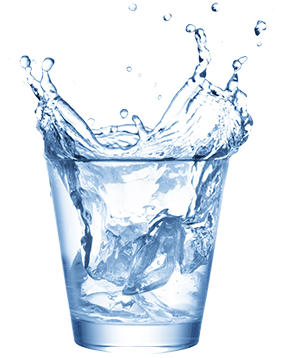
Fluids and Hydration by Vanessa Fitzgerald
 Are you feeling tired and sluggish at work and having a hard time performing at optimal level? You may be dehydrated!
Are you feeling tired and sluggish at work and having a hard time performing at optimal level? You may be dehydrated!
How Important are Fluids?
Approximately 60 percent of your body weight is water. As you exercise, fluid is lost through your skin as sweat and through your lungs when you breathe. If this fluid is not replaced at regular intervals during exercise, you can become dehydrated. Dehydration can become a serious medical issue if it’s not treated in a timely manner.
When you are dehydrated, you have a smaller volume of blood circulating through your body. Consequently, the amount of blood your heart pumps with each beat decreases and your muscles do not receive enough oxygen from your blood. Soon exhaustion sets in and performance suffers unless you replace the fluid you have lost. Proper fluid replacement is the key to preventing dehydration and reducing risk of heat injury.
Symptoms of Dehydration are:
- Constipation
- Decreased urine output
- Dizziness or lightheaded
- Dry skin
- Headaches
- Sleepiness or fatigue
Severe Dehydration Symptoms are:
- Dry mucous membrane, particularly around the mouth
- Fever
- Little or no urination
- Rapid breathing
- Rapid heartbeat
- Sunken eyes
- Very dry skin
How Can You Prevent Dehydration?
The best way is to maintain body fluid levels is by drinking plenty of fluids. Thirst is not an accurate indicator of how much fluid you have lost. If you wait until you are thirsty to replenish body fluids, then you are already dehydrated. Most people do not become thirsty until they have lost more than two percent of their body weight. And if you only drink enough to quench your thirst, you may still be dehydrated. Keep a water bottle available and drink as often as you want, ideally every 15 to 30 minutes.
Additional Tips to Hydrate:
- Drink a beverage that contains a small amount of sodium and other electrolytes
- Avoid carbonated drinks, which can cause gastrointestinal distress and may decrease the fluid volume
- Avoid beverages containing caffeine and alcohol due to their diuretic effect
The information provided is for general interest only and should not be misconstrued as a diagnosis, prognosis or treatment recommendation. This information does not in any way constitute the practice of medicine, or any other health care profession. Readers are directed to consult their health care provider regarding their specific health situation. Marque Medical is not liable for any action taken by a reader based upon this information.

